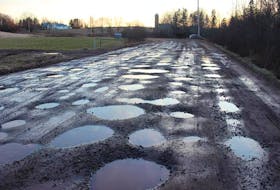Last month I wrote “In Praise of Science” covering the major scientific accomplishments achieved by humanity in the past couple of centuries. These significant contributions seem to be taken for granted nowadays, and scientists have been subject to a lot of punishment lately because of the “politicization” of science around controversial topics like “climate change” and measles vaccination.
It’s interesting that in the past century contributions made by those practicing the “Arts” have declined in quality and enduring value, compared to what the world had been blessed with in previous times.
Major components of the “Arts” include literature (fiction & non-fiction), performing arts (dance, music, and theatre), and visual arts (drawing, painting, filmmaking, architecture, ceramics, sculpting, photography). All are considered as worthy when performed by people gifted with skill and imagination.
Unfortunately, standards of skill and imagination have declined significantly in the recent past to the point that most of today’s artistic activities seem unworthy compared to what has gone before.
Beginning with literature, which contemporary works compare with the writings of Charles Dickens, Jane Austen, Robert Louis Stevenson, Mark Twain, George Bernard Shaw and Sir Arthur Conan Doyle, etc; writers who produced works of lasting value that continue to be enjoyed?
Will works that currently make the New York Times Best Seller List be enjoyed a hundred years from now? J.K. Rowling’s excellent Harry Potter novels will probably continue to be widely read, but not too many others.
In the performing arts, music has always figured prominently in our culture, but the works of the Mozart, Tchaikovsky, Bach and Beethoven set a standard of music composition that continues to bring music lovers into concert halls around the world.
In the visual arts, the calibre of current moviemaking can be summed up in two words “Marvel Comics” - influencing flimsy stories featuring violent animation and unreal forms of life and happenings. Superhero movies are said to be the McDonalds’ of cinema and too much of this junk food is being consumed.
I recently watched “The Movies”, a CNN documentary miniseries that chronicled the history of cinema from the 1930-1950s, the “Golden Age of Hollywood", and then five episodes from the 1960s to today. They made for engrossing viewing, but it was plain to see in them a gradual downward trend towards mediocrity.
With painted artwork, the descent to irrelevancy has been most dramatic. So-called modern art is now very much an insider’s game with devotees struggling to show merit in the work of these artists.
Gone are the days when such artwork communicated to the viewer the essence of life including religious devotion, the evolution of our civilisations, the magic of our planet, and the grace of the human form.
This is why visits to European museums such as the Louvre in Paris, the Uffizi in Florence, and the Prado in Madrid, need to be booked way ahead of your trip to guarantee admission on the day you visit, so you have the time to take in the masterworks of Michelangelo, Leonardo, Rembrandt, Raphael, Botticelli, and others. Such is their popularity.
There is one bright spot on the changing cultural scene, and it is the art of written and spoken poetry. Poetry is both a type of art form, and of literature. It comes in many flavours including poems, limericks, sonnets and nursery rhymes. It can rhyme or not. It can make sense or be nonsense. It can be serious or funny. When spoken by the poets themselves it adds a whole other dimension to a public reading.
Oxford has hosted two spring poetry festivals so far - billed as “Poetry at Large”- with readings taking place in some imaginative locations in the town. Each festival was successful in introducing newcomers to this art form. This past spring, I was fortunate to be among the “people who don’t know yet if they enjoy poetry, take a chance and experience it at one of our events..” the goal statement for the festival.
Alan Walter is a retired professional engineer living in Oxford. He was born in Wales and worked in Halifax. He spends much of his time in Oxford, where he operates a small farm. He can be reached at [email protected].

![['Did You Know That with Alan Walter']](https://saltwire.imgix.net/did-you-know-that-with-alan-walter-3009037.jpg?cs=srgb&fit=crop&h=568&w=847&dpr=1&auto=enhance%2Ccompress%2Cformat)







